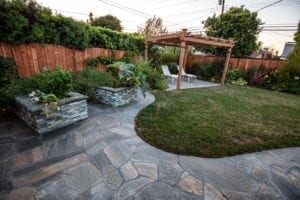Organic gardening is a way of growing plants without using synthetic pesticides, herbicides, or fertilizers. It is a more natural and environmentally friendly approach to gardening that can produce healthy and delicious food.
If you are new to organic gardening, here are some tips to help you get started:
1. Choose the right location for your garden
Most plants need at least 6-8 hours of sunlight per day, so choose a spot in your yard that gets plenty of sun. You should also avoid planting near trees or shrubs, as their roots can compete with your plants for water and nutrients.
2. Start with good soil
Healthy soil is essential for a successful organic garden. If your soil is poor, you can improve it by adding compost, manure, or other organic matter. You can also test your soil to determine its nutrient levels and pH level.
3. Select the right plants
When choosing plants for your organic garden, consider your climate and the amount of sunlight your garden receives. You should also choose plants that are resistant to pests and diseases.
4. Water regularly
Plants need water to survive and thrive. Be sure to water your plants regularly, especially during hot weather. However, be careful not to overwater, as this can lead to root rot.
5. Fertilize with organic matter
Organic fertilizers, such as compost, manure, and fish emulsion, provide plants with the nutrients they need to grow strong and healthy. You can apply organic fertilizers to your soil every few weeks or months.
6. Control pests and diseases naturally
There are a number of natural ways to control pests and diseases in your organic garden. For example, you can use companion planting, insecticidal soap, and neem oil. You can also encourage beneficial insects to live in your garden, which can help to control pests.
7. Mulch your garden
Mulch, such as straw, leaves, or wood chips, can help to retain moisture in the soil, suppress weeds, and prevent soil erosion.
8. Harvest your crops at the right time
Harvesting your crops at the right time is important for both flavor and quality. For example, tomatoes should be harvested when they are red and ripe, and cucumbers should be harvested when they are about 6 inches long.
Here are some additional tips for beginner organic gardeners:
- Start small. It is better to start with a small garden that you can manage than to start with a large garden that becomes overwhelming.
- Don’t be afraid to experiment. There is no one right way to organic garden. Try different things and see what works best for you and your garden.
- Learn from others. There are many resources available to help beginner organic gardeners, such as books, websites, and gardening classes.
- Be patient. Organic gardening takes time and effort. Don’t get discouraged if you don’t have perfect results right away.

Organic gardening is a rewarding experience that can provide you with fresh, healthy food and a beautiful garden. By following these tips, you can get started on the path to successful organic home gardening.
To gather additional information’s, you can visit Top 20 Outdoor Living Room Ideas for Al Fresco Entertaining.



